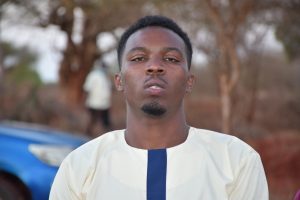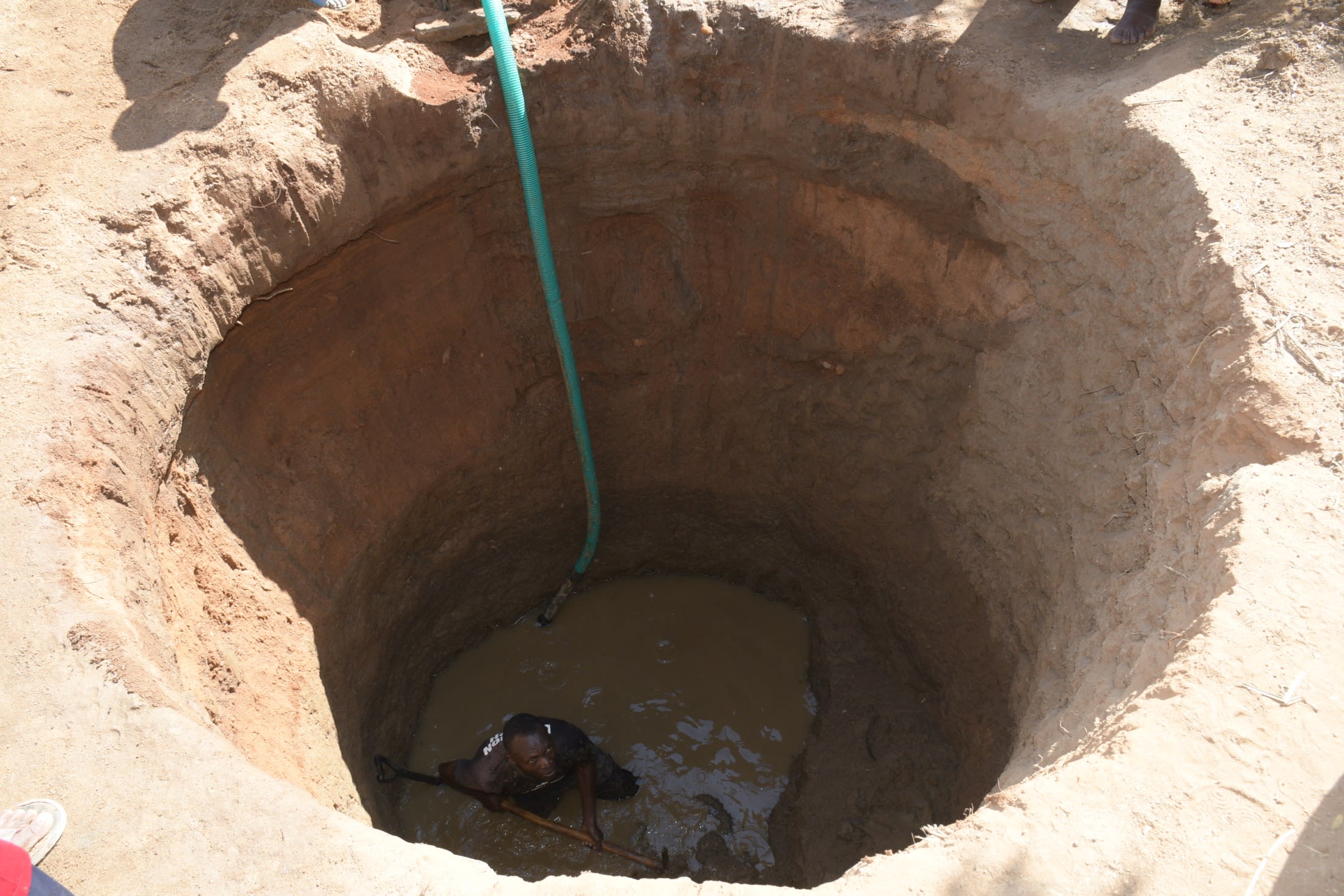Water is rationed in Syunoo community. After seeing where they must fetch water from every day, this fact is not surprising.
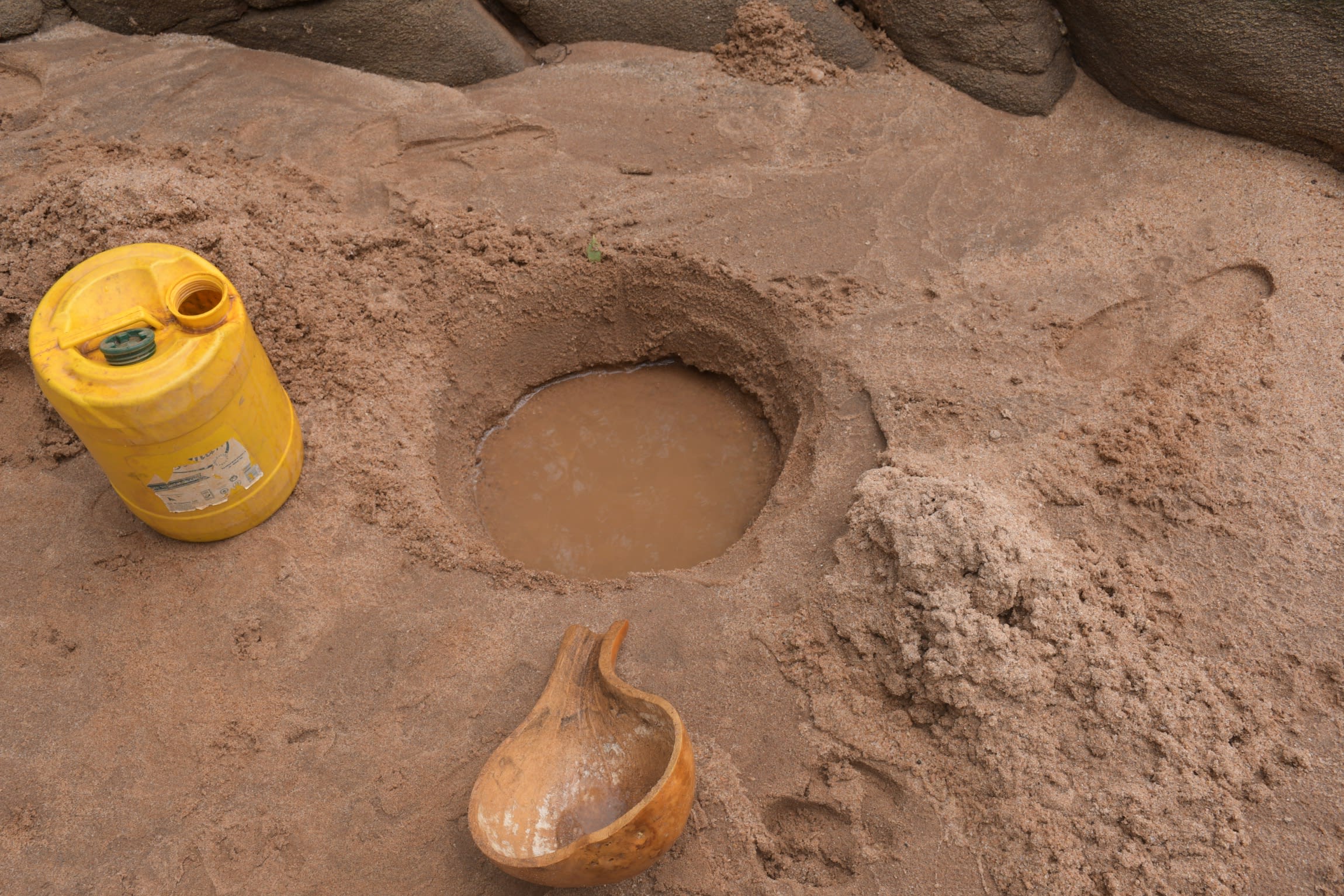
The implications of this are far-reaching. Community members find it difficult to keep up farming and livestock-rearing activities because they don't have enough water to water their crops or properly feed their animals. But unless someone in each household spends an entire day just going back and forth to the dry riverbed (a distance of 8 kilometers - almost 5 miles!), there simply isn't enough water to go around.
"The water from the scoop holes is mostly salty, making it unsuitable for drinking or farming," explained Elizabeth Musembi, 46, shown below transferring water from a jerrycan at her house.
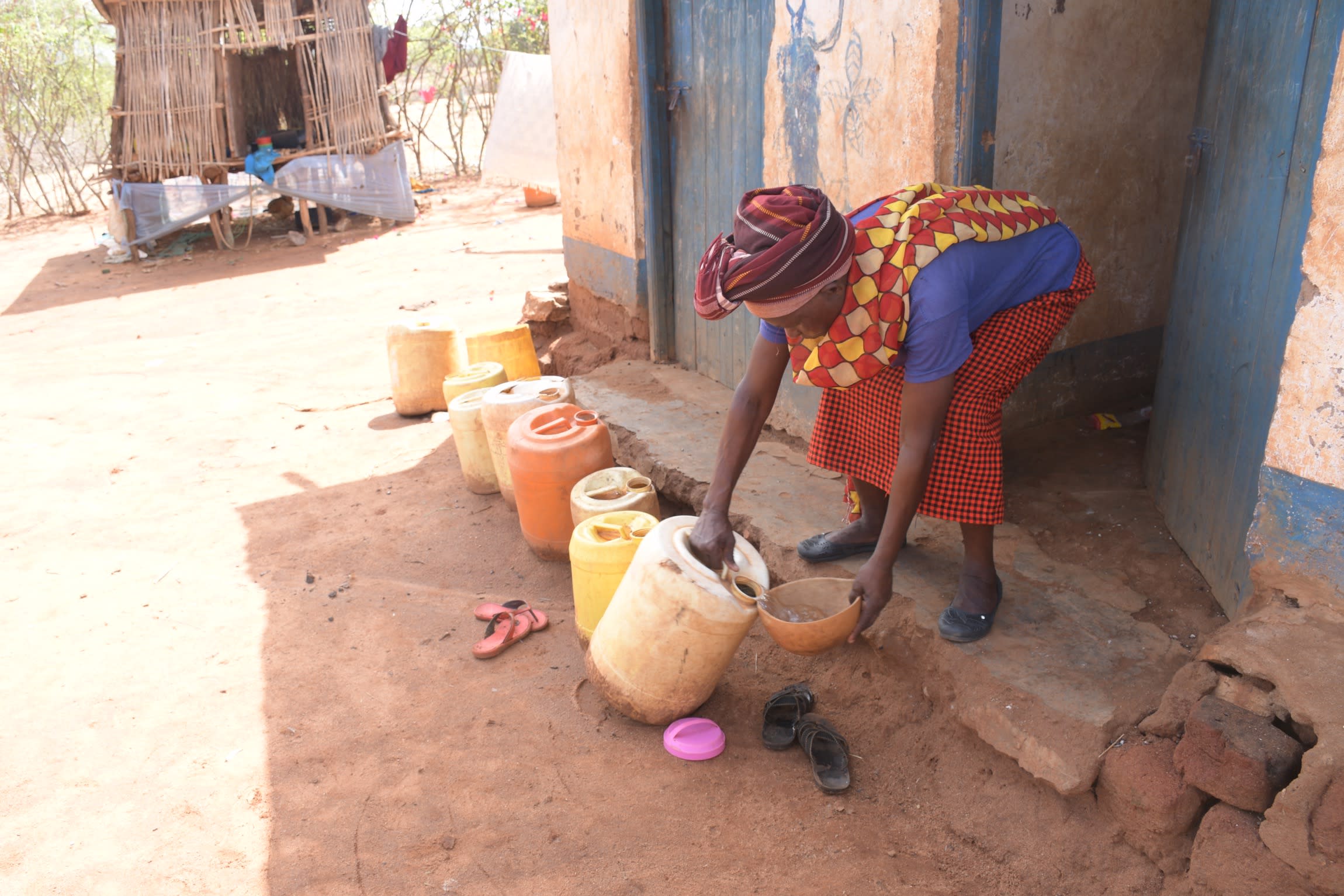
"Water scarcity in the region has also negatively affected hygiene and sanitation because water has to be used sparingly," Elizabeth continued. "Conducting farming is also difficult because the little available water is not enough for watering crops, which has led to food insecurity and lack of a source of income during the long drought periods."
The long distance water-fetchers walk under the scorching sun exhausts them, and the contaminated water sickens them with stomach upsets, typhoid, amoebas, and dysentery. These sick and tired people are unable to focus on farming, which is their main source of income and food security.
"I have to carry water from home when going to school, which leads to [an] inability to concentrate fully on my studies," said 12-year-old Ken M., shown fetching water from a scoophole on the dry riverbed, below. "Practicing personal hygiene is also impossible."
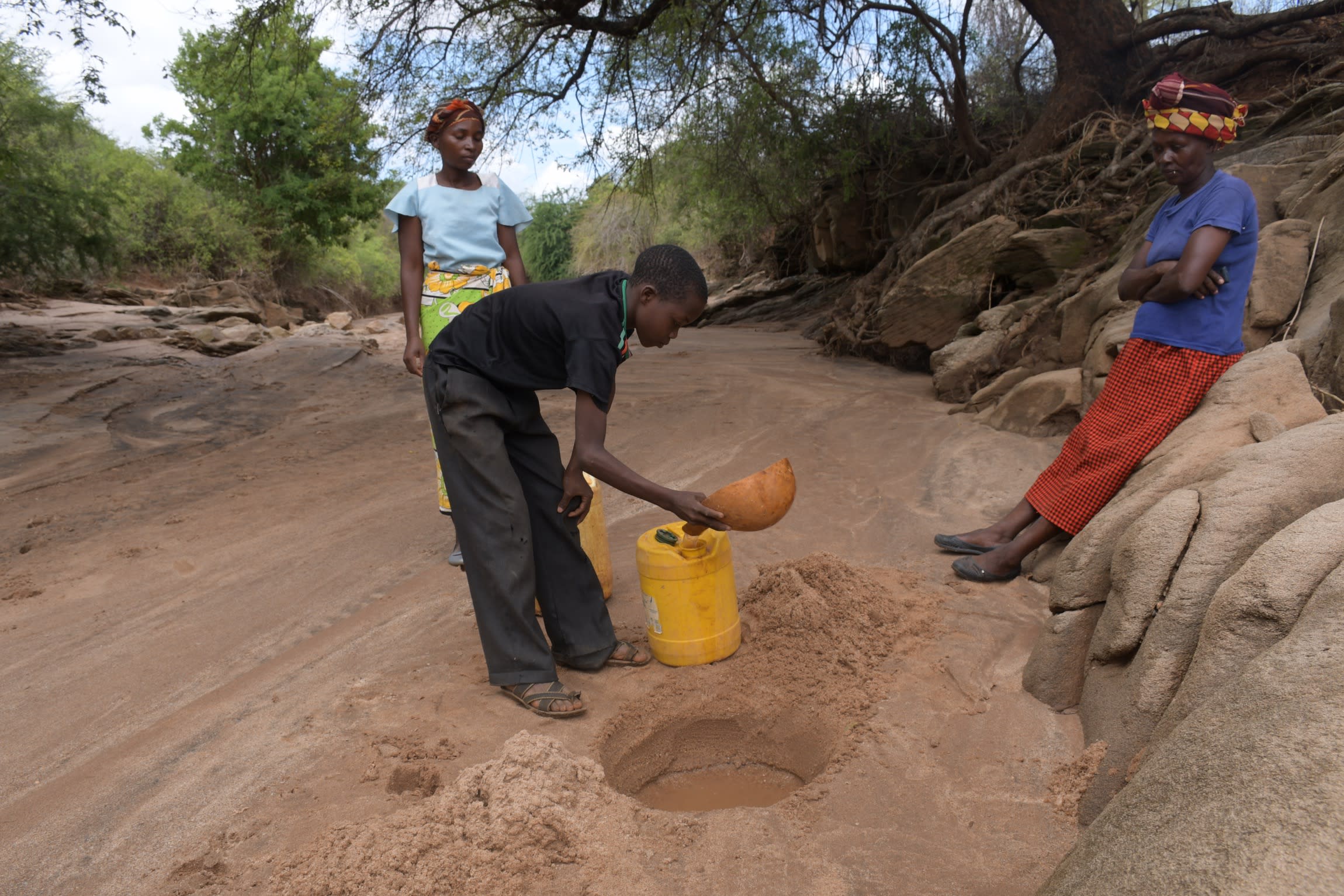
"I also have to go fetch water from the scoopholes after school, which further consumes my play and study time," Ken continued. "I have contracted typhoid and amoeba in the past, leading to school absenteeism and ultimately poor academic performance."
With a sand dam and well closeby, the people of Syunoo will have so much more time and energy with which to dream and accomplish their goals. Their health will no longer be threatened by water-related disease.
Reliable Water for Syunoo
Our main entry point into this community has been the Kiisu Self-Help Group, which comprises households working together to address water and food scarcity in their region. These members will be our hands and feet in constructing water projects and spreading the message of good hygiene and sanitation to everyone.
Hand-Dug Well
This particular hand-dug well will be built adjacent to a sand dam project, which will supply clean drinking water once it rains. We have provided the group with the tools needed for excavation. With the guidance of our artisans and mechanics, the excavated well will be cased, sealed with a well pad, and then finished with a new AfriDev pump.
Excavation takes a month or more on average, depending on the nature of the rock beneath. Construction of the well lining and installation of the pump takes 12 days maximum. The well will be lined with a concrete wall including perforations so that once it rains, water will filter in from the sand dam.
This well will bring clean water closer to families.
New Knowledge
These community members currently do their best to practice good hygiene and sanitation, but their severe lack of water has significantly hindered reaching their fullest potential.
We will hold hygiene and sanitation training sessions with the Self-Help Group and other community members to teach essential hygiene practices and daily habits to establish at the personal, household, and community levels. This training will help to ensure that participants have the knowledge they need to make the most out of their new water point as soon as the water is flowing.
One of the most important topics we plan to cover is handling, storage, and water treatment. Having a clean water source will be extremely helpful, but it is useless if water gets contaminated when it is consumed. We will also emphasize the importance of handwashing.
The community and we firmly believe that all of these components will work together to improve living standards here, which will help to unlock the potential for these community members to live better, healthier lives.
We typically work with self-help groups for 3 to 5 years on multiple water projects. We will conduct follow-up visits and refresher training during this period and remain in contact with the group after all of the projects are completed to support their efforts to improve sanitation and hygiene.





 Protected Dug Well
Protected Dug Well
 Rehabilitation Project
Rehabilitation Project










